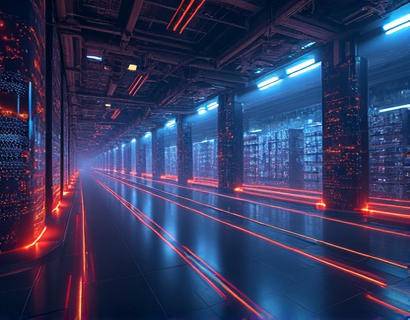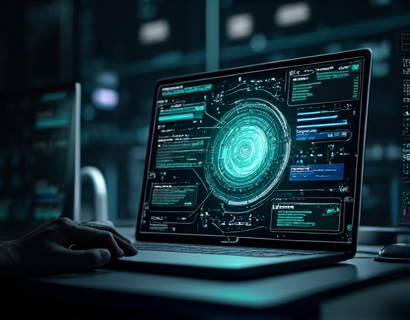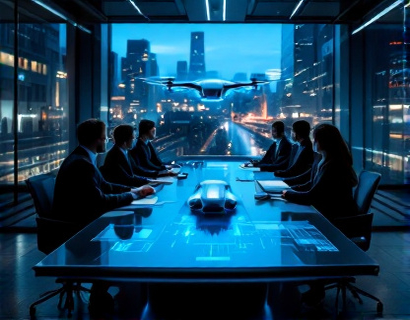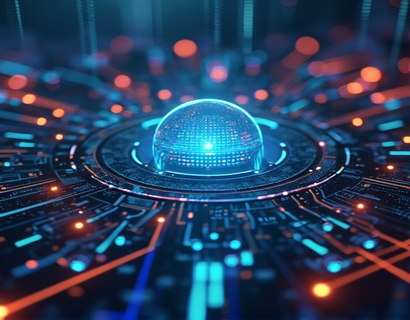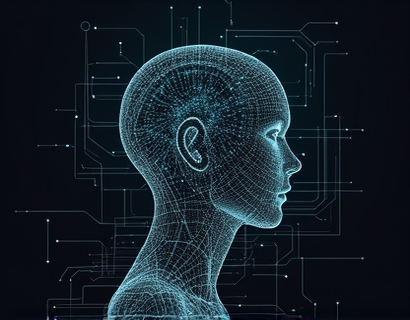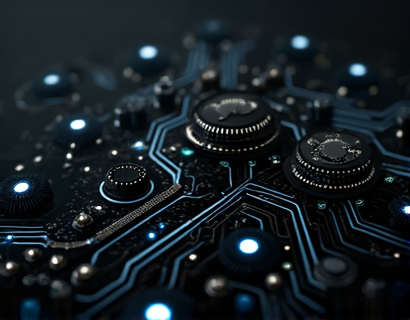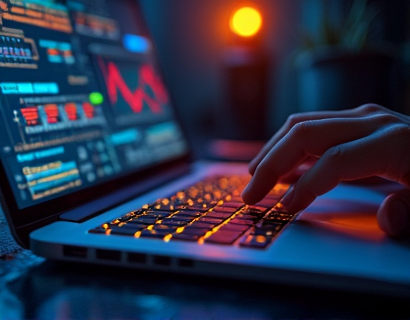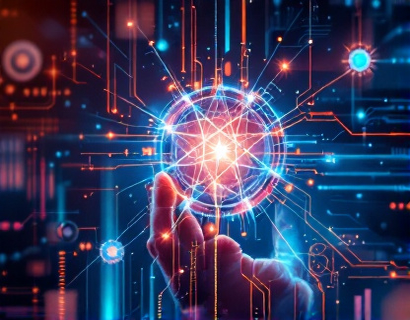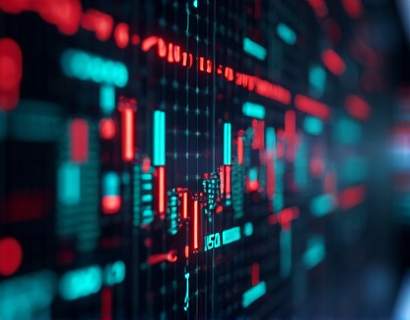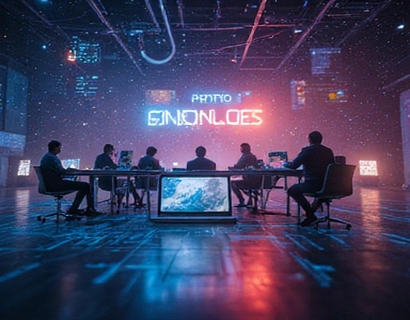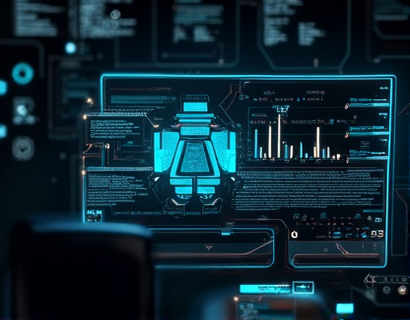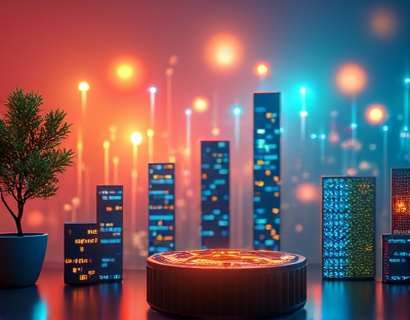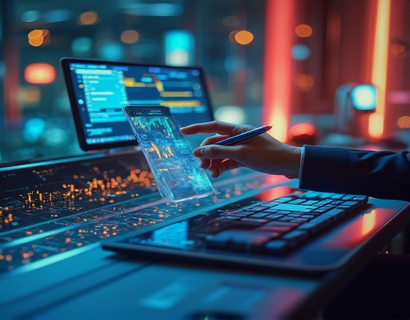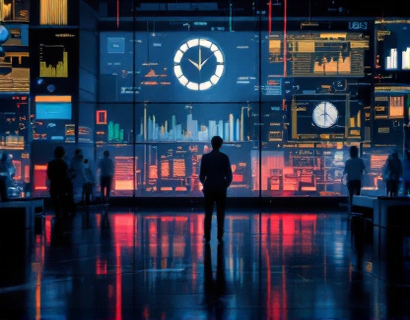Decentralized AI-Driven Transformation: Unleashing Next-Gen Digital Solutions with Crypto Synergy
The intersection of artificial intelligence and cryptocurrency is giving birth to a new era of digital transformation. This synergy is not just about combining two powerful technologies but about creating a paradigm shift in how we interact with digital services and applications. The emergence of decentralized AI-driven solutions is redefining the landscape of online engagement, offering unprecedented levels of security, transparency, and user empowerment. This article delves into the transformative impact of this convergence, exploring the next generation of decentralized applications and services that are set to revolutionize the digital world.
The traditional centralized models of technology have been dominated by a few large corporations, often leading to issues of data privacy, security, and user control. The advent of blockchain technology and decentralized systems has challenged this status quo by distributing control across a network of nodes, eliminating single points of failure and enhancing security. When AI is integrated into this decentralized framework, the potential for innovation becomes immense. AI algorithms can operate on decentralized data, ensuring that user data remains private and secure while still being utilized to enhance services and applications.
Understanding Decentralized AI
Decentralized AI, often referred to as DAI, involves the use of AI algorithms and models that run on decentralized networks, typically blockchain. This approach ensures that the data used to train and run AI models is distributed and not controlled by a single entity. The decentralized nature of these systems provides several advantages. First, it enhances data privacy as user data is not stored in a central location, reducing the risk of data breaches. Second, it increases transparency, as all transactions and data exchanges are recorded on a public ledger, allowing users to verify the integrity of the system. Third, it promotes fairness and reduces the risk of bias, as AI models are trained on diverse and decentralized data sets.
The foundation of decentralized AI lies in blockchain technology, which provides a secure and transparent way to manage data and execute smart contracts. Smart contracts, self-executing contracts with the terms directly written into code, can automate complex AI workflows without the need for intermediaries. This automation not only reduces costs but also increases efficiency and reliability. For instance, AI models can be trained using data stored on a blockchain, and the results can be verified and executed through smart contracts, ensuring that the process is tamper-proof and auditable.
Enhancing User Experience with Decentralized AI
The integration of AI into decentralized applications (dApps) is transforming user experiences across various domains. One of the most significant benefits is personalized and context-aware services. Decentralized AI can analyze user behavior and preferences in real-time, providing tailored recommendations and interactions. For example, in decentralized finance (DeFi) platforms, AI-driven bots can offer personalized investment advice based on a user's risk profile and market conditions, all while maintaining the user's privacy and control over their funds.
Another area where decentralized AI shines is in natural language processing (NLP). Decentralized chatbots and virtual assistants can understand and respond to user queries in a more human-like manner, thanks to AI models trained on diverse and decentralized data. These AI-driven assistants can operate across multiple platforms and languages, breaking down barriers and enhancing global connectivity. The decentralized nature ensures that user data is not monopolized by a single entity, giving users greater control over their interactions.
Security and Trust in Decentralized AI Systems
Security is a paramount concern in the digital age, and decentralized AI systems offer robust solutions to enhance trust and security. By distributing data and computation across a network, decentralized AI reduces the risk of centralized attacks and data breaches. Each node in the network contributes to the validation and processing of AI tasks, making it extremely difficult for malicious actors to manipulate the system. This distributed approach also ensures that the system remains resilient, as the failure of a single node does not compromise the entire network.
Transparency is another key aspect of decentralized AI. All transactions and data exchanges are recorded on a blockchain, providing an immutable and transparent record. Users can verify the integrity of AI models and the data they are trained on, fostering trust in the system. This level of transparency is particularly important in industries such as healthcare and finance, where data accuracy and integrity are critical. Decentralized AI can help ensure that AI-driven decisions are based on reliable and unaltered data, reducing the risk of errors and fraud.
Challenges and Considerations
Despite the numerous benefits, the deployment of decentralized AI systems comes with its own set of challenges. One of the primary challenges is scalability. Blockchain networks, especially those using proof-of-work consensus mechanisms, can be slow and resource-intensive. This can limit the real-time capabilities of AI applications. However, the development of more efficient consensus mechanisms, such as proof-of-stake and sharding, is addressing these scalability issues, making decentralized AI more viable for large-scale applications.
Another challenge is the computational complexity of AI models. Running complex AI algorithms on a decentralized network requires significant computational power, which can be costly and energy-intensive. To mitigate this, researchers are exploring lightweight AI models and edge computing solutions that can process AI tasks closer to the data source, reducing the load on the blockchain network. Additionally, the use of federated learning, where AI models are trained on decentralized devices without centralizing data, is gaining traction as a way to balance computational efficiency and data privacy.
Use Cases and Industries Transformed
The potential applications of decentralized AI are vast and varied, impacting multiple industries and use cases. In the healthcare sector, decentralized AI can enhance patient care by analyzing medical data from multiple sources while ensuring patient privacy. AI models can predict disease outbreaks, personalize treatment plans, and streamline administrative tasks, all within a secure and transparent framework. This not only improves healthcare outcomes but also reduces costs and enhances patient trust.
In the financial industry, decentralized AI can revolutionize trading and risk management. AI-driven trading bots can analyze market data from decentralized sources, making informed decisions in real-time. Smart contracts can automate complex financial transactions, reducing the need for intermediaries and lowering transaction costs. Decentralized credit scoring models can provide fair and accurate credit assessments based on a wide range of data points, inclusive of non-traditional data sources.
The entertainment industry is another area where decentralized AI can make a significant impact. AI-powered content recommendation systems can offer personalized experiences to users, enhancing engagement and satisfaction. Decentralized platforms can also ensure that creators receive fair compensation for their work, as AI can track and distribute royalties automatically and transparently. Virtual and augmented reality experiences can be enriched with AI-driven elements, creating immersive and interactive environments.
The Future of Decentralized AI
As the technology matures, the integration of AI and decentralized systems is expected to become more seamless and widespread. Advancements in blockchain scalability, AI efficiency, and interoperability will further enhance the capabilities of decentralized AI applications. The rise of cross-chain technologies will enable AI models to operate across different blockchain networks, fostering a more interconnected and collaborative ecosystem.
Moreover, the development of user-friendly interfaces and tools will democratize access to decentralized AI, allowing developers and businesses of all sizes to leverage these technologies. Educational resources and community support will play a crucial role in fostering innovation and adoption. As more people understand the benefits and potential of decentralized AI, we can expect to see a surge in creative and practical applications across various fields.
In conclusion, the synergy between AI and decentralized technologies is paving the way for a new generation of digital solutions that prioritize security, transparency, and user empowerment. The future of online engagement is being redefined by this powerful combination, offering endless possibilities for innovation and growth. As we continue to explore and harness the potential of decentralized AI, we stand on the brink of a transformative digital revolution.




